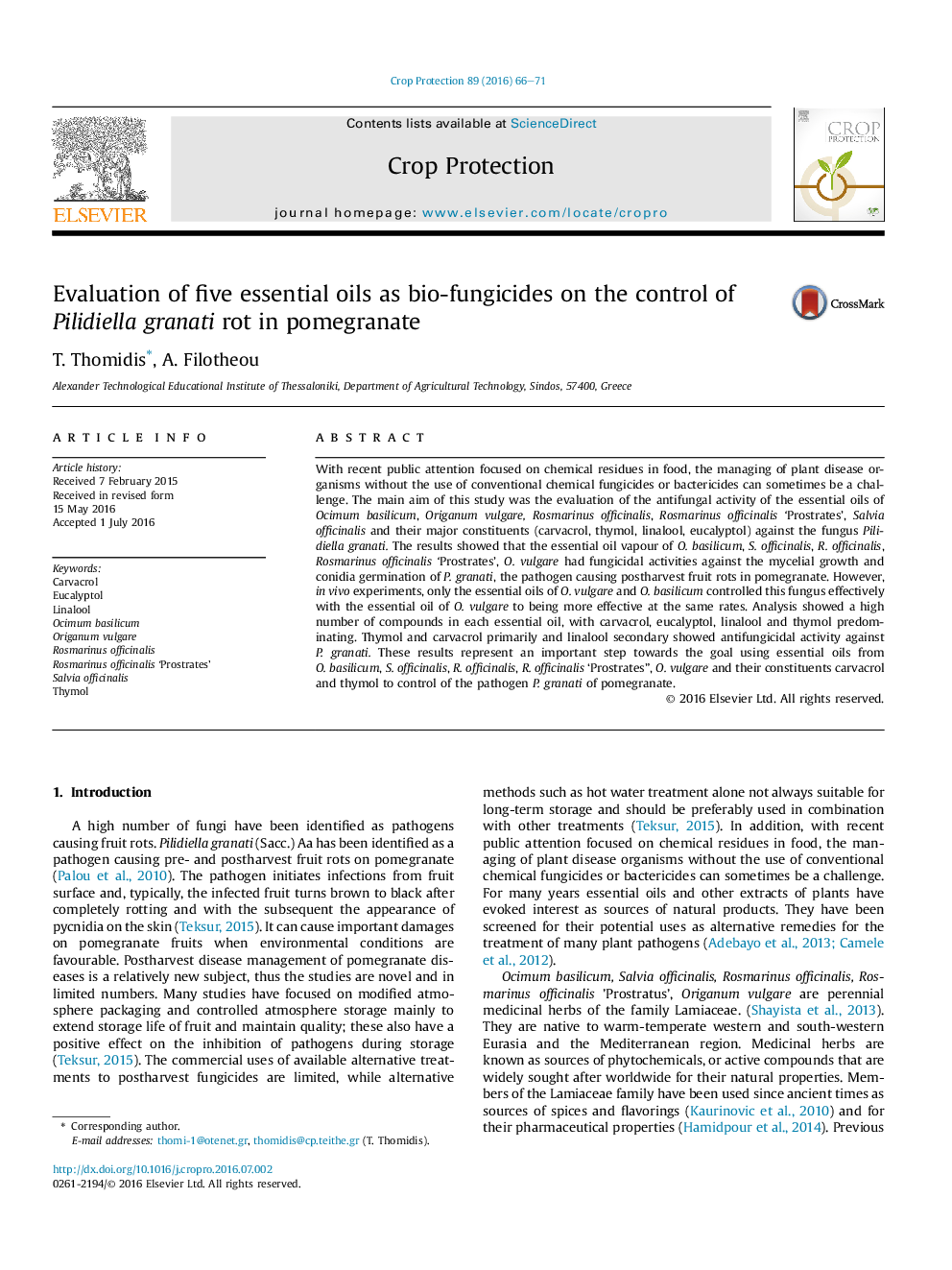| Article ID | Journal | Published Year | Pages | File Type |
|---|---|---|---|---|
| 6373146 | Crop Protection | 2016 | 6 Pages |
Abstract
With recent public attention focused on chemical residues in food, the managing of plant disease organisms without the use of conventional chemical fungicides or bactericides can sometimes be a challenge. The main aim of this study was the evaluation of the antifungal activity of the essential oils of Ocimum basilicum, Origanum vulgare, Rosmarinus officinalis, Rosmarinus officinalis 'Prostrates', Salvia officinalis and their major constituents (carvacrol, thymol, linalool, eucalyptol) against the fungus Pilidiella granati. The results showed that the essential oil vapour of O. basilicum, S. officinalis, R. officinalis, Rosmarinus officinalis 'Prostrates', O. vulgare had fungicidal activities against the mycelial growth and conidia germination of P. granati, the pathogen causing postharvest fruit rots in pomegranate. However, in vivo experiments, only the essential oils of O. vulgare and O. basilicum controlled this fungus effectively with the essential oil of O. vulgare to being more effective at the same rates. Analysis showed a high number of compounds in each essential oil, with carvacrol, eucalyptol, linalool and thymol predominating. Thymol and carvacrol primarily and linalool secondary showed antifungicidal activity against P. granati. These results represent an important step towards the goal using essential oils from O. basilicum, S. officinalis, R. officinalis, R. officinalis 'Prostrates”, O. vulgare and their constituents carvacrol and thymol to control of the pathogen P. granati of pomegranate.
Keywords
Related Topics
Life Sciences
Agricultural and Biological Sciences
Agronomy and Crop Science
Authors
T. Thomidis, A. Filotheou,
